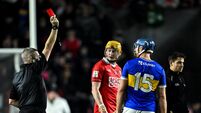US economy still in recession
The US economy is still in a recession that began in March 2001, a panel charged with dating US recessions said in its January report.
"According to the most recent data, the US economy continues to experience growth in output but declines in employment," the National Bureau of Economic Research (NBER) panel noted recently.
















